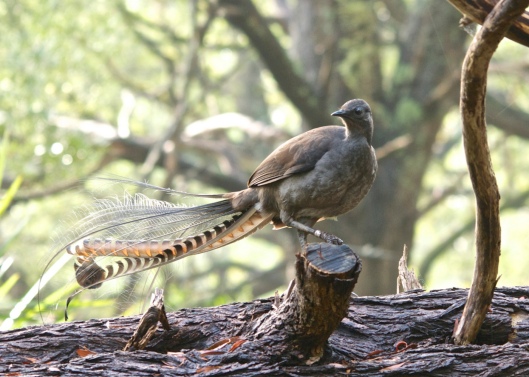Tags
animal names, celebrity baby names, dog names, english names, famous namesakes, fictional namesakes, imperial titles, Japanese names, locational names, modern names, musical names, name history, name meaning, name trends, names of animals, names of rivers, nature names, nicknames, philosophical terms, plant names, rare names, slang terms, surname names, title names, virtue names, vocabulary names, weapon names
Just as with the girls names, these are ten names I saw given to real life baby boys in 2015 – but only once.
Bear
Bears have been important to humans since prehistoric times, hunted for their meat and fur, and sometimes worshipped as a totem animal or deity. Bears have a starring role in our subconscious: there are legends of saints taming bears, and they feature in folk and fairy tales. One of the best known is Goldilocks and the Three Bears, and Winnie-the-Pooh and Yogi Bear show that bears continue to appeal to us. There are bear-related names, such as Bernard, Ursula and Orson, so that Bear as a name does not seem out of place. Bear has been used as an English name since around the 17th century, in some cases possibly from the surname, or used to translate bear names from other countries such as Ber and Bjorn. It has often been used as a nickname, a famous example being British adventurer Edward “Bear” Grylls. The boys’ name Bear showed up in UK and US name data after Grylls’ popular TV series Born Survivor (Man vs Wild elsewhere), and is rising in both countries, on trend with other animal names. It has been chosen as a baby name by celebrities such as Kate Winslet and Alicia Silverstone, while Jamie Oliver’s son has Bear as one of his middle names. Bear is strong and masculine in a shaggy, rough-and-tumble way, yet also sweet and cuddly – like a bear hug!
Courage
Courage is another word for bravery or fortitude; it comes from French, and is ultimately derived from the Latin for “heart”. It is not mere fearlessness, but having the moral strength to perservere and keep going under difficult circumstances. Courage was regarded as one of the highest virtues by the ancient Greeks and Romans, and in some Christian traditions is seen as one of the gifts of the Holy Spirit. It is also given high praise in Islam, Hinduism, and Eastern philosophies, while we think of people of courage as the true heroes. Unlike some other virtue names, Courage has only been used as a name since the 19th century and has always been rare, more often given to boys. A good choice for a baby facing an uphill battle, or for families in crisis.
Edge
An edge is the extreme of a margin, or the cutting side of a blade. To have the edge on someone means to be at an advantage, while if you are straight edge, you are a hardcore punk living a clean life. The word edge comes from an ancient root meaning “sharp”. There are names related to the word edge, such as Egbert, and Edge- is part of several English surnames, such as Edgely and Edgeworth. As a personal name, Edge originated in Cheshire in the 17th century – edge is a local term for an escarpment, and there are villages in Cheshire called Edge, or known as The Edge. The name Edge has never been common and is sometimes used as a nickname or professional name. A famous example is the musician named The Edge from U2 (apparently the nickname comes from his sharp features and mind). The name Edge might make you feel a bit edgy, or perhaps you’ll think that it’s right at the cutting edge of fashion.
Kaiser
Kaiser is the German word for “emperor”, derived from the Roman title of Caesar. This comes straight from the surname of Julius Caesar, believed to simply mean “hairy” (perhaps the first Caesar had lovely locks, or it could be a joke name for someone bald). The Holy Roman Emperors were the first to use the title Kaiser, in the belief that they were continuing the role of the Roman Empire. Even after the Holy Roman Empire was dissolved, the title of Kaiser continued to be used by the House of Hapsburg. Thanks to high school history class, we tend to connect the title with Kaiser Wilhelm II, head of the German Empire during World War I. Kaiser has been used as a personal name since perhaps the 19th century, although it some cases it may have been a nickname given to a German immigrant. Kaiser was chosen as a baby name last year on the reality TV show Teen Mom 2, and since then the name has been rising in both the US and UK. One possible inspiration is British band the Kaiser Chiefs. Title names are on trend, and this one can be shortened to popular Kai.
Pilot
The word pilot originally referred only to someone who steered a ship, and even now a pilot is one who knows a harbour or coastline well, and is hired to help navigate a vessel: it is one of the world’s oldest professions. More generally, a pilot can be any sort of guide through an unknown area, and pilots are used in road transport as well. However, most people connect the word with airline pilots, air travel having overtaken sea travel in importance. The word is from French, and may ultimately be from the ancient Greek for “oar”. Pilot has been in rare use as a personal name since the 19th century, and was probably once best known as a dog name – in Jane Eyre, Mr Rochester has a magnificent Landseer Newfoundland named Pilot. Actor Jason Lee named his son Pilot in 2003, and since then the name has been occasionally used for boys in the US, but with no sign of growth. Occupational names like Mason and Cooper are common for boys, but this one is still an attention-grabber.
Reef
A reef is a sandbar, or a chain of rocks or coral lying near the surface of the water. In Australia, a reef also means a vein of gold-bearing quartz, so it is connected with mining, while sailors will know it as the part of the sail which is rolled up. The word comes ultimately from an ancient root meaning “arch, ceiling”. Reef has been used as a boys’ name since the 19th century, although never very common. In Australia, the name is often connected with the Great Barrier Reef in Queensland, the world’s largest coral reef system. Not only important to Indigenous Australians, the Great Barrier Reef is a major tourist attraction. It has recently been in the limelight as it is the subject of a documentary by David Attenborough funded by Tourism Australia. He warns that the reef is in imminent danger from climate change, although pollution is also a major threat. A masculine counterpoint to Coral, and favourite choice of the surfer crowd, Reef has strong conservation credentials. A possible issue is that it is also slang for marijuana.
Rhythm
Rhythm refers to the beat or tempo of music, and more generally to the flow and regular variations in any task or situation. The word has been in use since the 16th century, and is derived from the ancient Greek meaning “flow, run, stream, gush”. Rhythm is a very modern name, dating only to the 20th century, and has been given to both boys and girls, although currently more common as a boys name (and only a boys name in the UK). A rare musical name that recalls natural life cycles as well. One issue is that it may remind people of the rhythm method of birth control, perhaps ironically.
Rye
Rye is a type of grass related to wheat which has been grown domestically since the Stone Age. Native to Turkey and surrounding areas, it has been a staple crop in Central and Eastern Europe since the Middle Ages. One of the most valuable things about it is that it will grow in even poor soil, and during very cold weather. The English word dates to the 8th century, and the surname Rye may be after the grain, or from places such as Rye in East Sussex, its name meaning “at the island”, or the River Rye in Yorkshire, from the Celtic meaning “river”. (Rye in Melbourne is named after the Sussex town). The word may remind you of the Robert Burns ballad Comin’ Thro’ the Rye; as a misremembered quotation, it forms the title of the classic novel Catcher in the Rye. Rye has been used as a personal name since at least the 16th century, and is more often a boys name. Although rare, it fits in well with familiar names such as Riley, Ryan and Ryder, and seems like a short form for these names (such as the guitarist Ryland “Ry” Cooder).
Warrior
A warrior is one involved in combat; the word is from Anglo-Norman, and is derived from the Latin guerra, meaning “war” (related to guerilla). We tend to connect the word to tribal or ancient societies, and professional military forces formed the basis for warrior castes or classes, such as knights in medieval Europe, or the samurai of feudal Japan. Such castes generally had an idealistic moral code, stressing bravery, loyalty, and service to others, so that a warrior is not just a thug for hire, but has an element of nobility. We might also call anyone fighting for a cause a warrior, as Steve Irwin was the Wildlife Warrior, while using the word in a sneering way towards trolling keyboard warriors who are very brave as long as nobody knows who they are. Warrior has been used as a boy’s since the 19th century, and is very rare. It sounds a little like names such as Warren and Warwick, giving it some familiarity, although its similarity to the word worrier isn’t a help.
Zen
Zen is a school of Buddhism which originated in China during the 7th century, and spread to Vietnam, Korea, and Japan. It emphasises rigorous meditation practices, and favours direct personal understanding rather than knowledge of doctrine. The word is the Japanese pronunciation of the Chinese word Chán, which is derived from the Sanskrit word dhyāna, meaning “absorption, meditative state”. Such meditation is a way to gain liberation through calmness and awareness. Zen became known in the West in the late 19th century, and it flowered during the 1950s and ’60s – not only because of philosophers such as Alan Watts, but through the writings of beat poets such as Allen Ginsberg. That makes Zen seem cool on several different levels. Zen does have a history as a name in Japan, and has been used as an English name since the end of the 19th century. It is not very common, but the name is increasing in use. Simple yet meaningful, with a quirky letter Z to add interest, there is much to appreciate about tranquil Zen.
POLL RESULTS
People’s favourite names were Bear, Rye and Reef, and their least favourite were Kaiser, Rhythm and Warrior.
(Photo shows wilderness warrior Bear Grylls having a quiet Zen moment as he contemplates whether to eat bugs or climb inside an animal carcase for the night)










